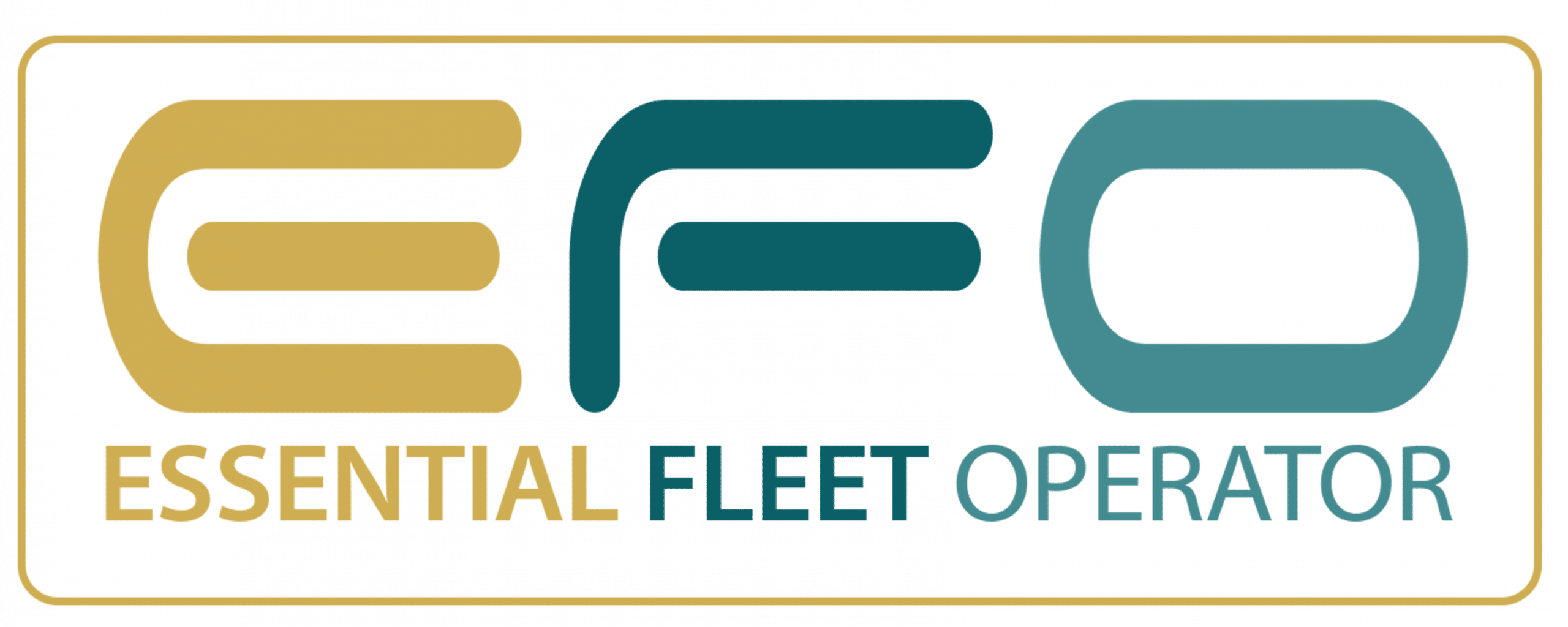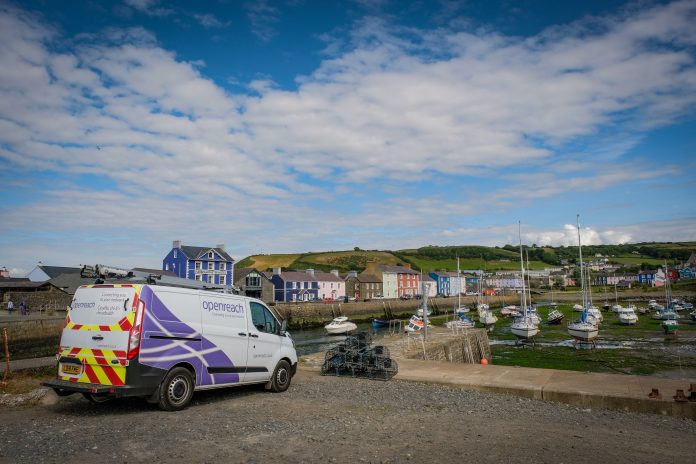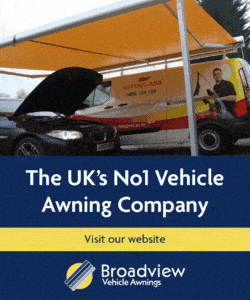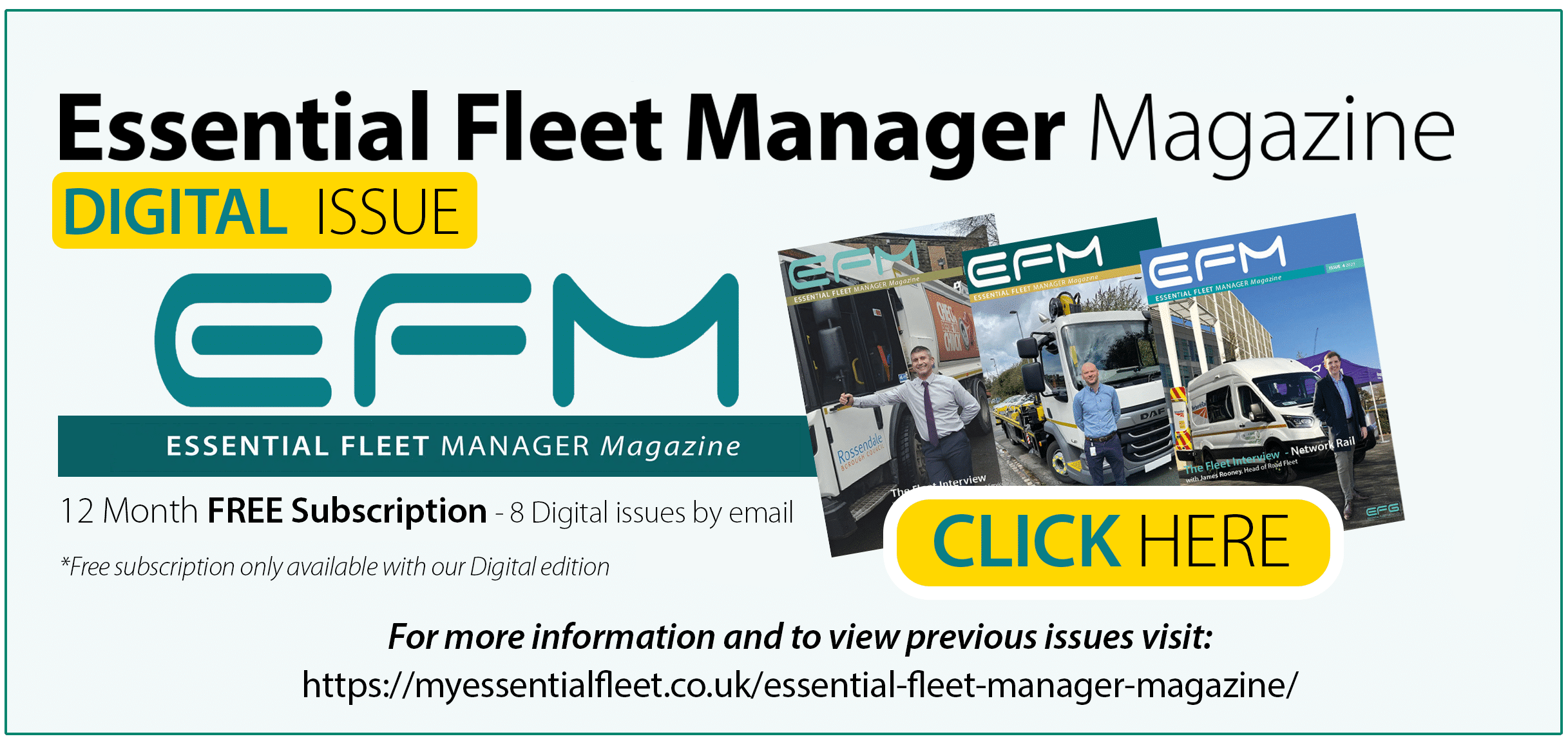Interview with: Chris Mullings, Operator Licence and Vehicle Compliance Manager, Openreach
Q: The Openreach fleet is one of the largest and most diverse in the UK. What are the challenges in developing a whole fleet national strategy with such a wide range of assets?
Openreach is the UK’s digital network business. Working on behalf of more than 630 Communications Providers (CP) such as Sky, Talk Talk and BT, we connect homes and businesses to phone and broadband services. With more than 25k commercial vehicles, we operate the second largest fleet in the UK.
Due to the size of the fleet there are various challenges that we face within Openreach. If I was to select my biggest 3 challenges I go for:
- Safety and compliance
- Carbon reduction and sustainability
- Vehicle design and allocations
Safety and compliance:
Safety and compliance will always be our number one priority and that doesn’t change across the fleet space. All Openreach drivers are required to complete daily vehicle safety checks, 6 monthly driving licence checks and observed vehicle checks with their individual managers.
As a large proportion of our workforce have passed their driving test after January 1997, we require fleet providers to offer us suitable solutions within the 3,500 kg MAM LGV fleet. This means that we must create and design innovative and effective vehicles and racking while also giving our workforce a vehicular solution that promotes safe and complaint working.
We also work closely with independent bodies such as the Freight Transport Association (FTA) to assess and review our fleet. We complete unannounced Gate Exit checks as well as vehicle safety and vehicle weight reviews. It’s also important to work with trade unions such as the Communication Workers Union to make sure that the safety of everyone and wellbeing of our workforce is at the forefront of what we do.
With our HGV fleet there are additional challenges especially with the additional focus on Operator Licence and wider vehicle compliance that we manage. Within Openreach we demonstrate driver hours compliance through manual driver records in paper W20 books and record defect via Driver Defect books, however we are currently looking into options around electronic defect reporting.
Sustainability
Openreach has a dedicated Corporate Responsibility team, responsible for our overarching strategy. My role involves working closely with this team to make the strategy a reality.
To help towards BT’s ambition of achieving net zero carbon emissions by 2045, we’ve created a dedicated working group, focussed on cutting emissions and helping to identify alternative, cleaner technologies.
Each year we replace our older vehicles with leaner, greener engines. We also understand the need to phase in alternative fuelled vehicles such as electric, which is why we have 15 vehicles rolled out to date and we have ambitious plans for more.
Vehicle design and allocations.
Alongside our fleet provider, we work very hard to make sure the vehicles we design are safe, complaint and innovative. The Openreach network spans urban and rural locations and as the network changes, so do the requirements of our engineers. This has a significant impact on the vehicles that we use and the activities that are completed from each vehicle.
We engage with the engineering workforce as early as possible in the design process to make sure that we capture all requirements from the people using our vehicles.
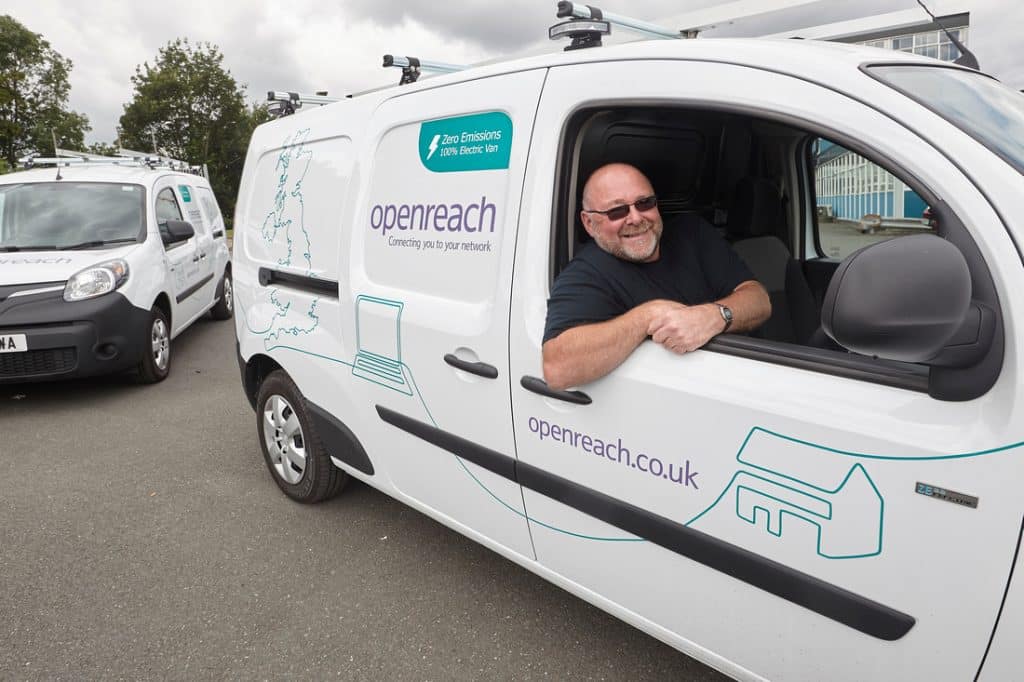
Q: Do you have any examples of initiatives applied to your large vehicle fleet that go beyond the requirements of ‘O’ Licence compliance?
As Openreach sits within the wider BT Group, we manage our own ‘O’ Licence requirements feeding into BTs Senior Transport Manger. Complying with the O licence requirements is the minimum standard that we set to achieve and we’re proud to be incorporated (via BT) as a founder member of the DVSA’s Earned Recognition Scheme.
We’re continually looking at how to improve our performance and we’re currently rolling out electronic vehicle check apps for drivers to complete on their phones and we are also looking at how to track and record defects electronically via phone applications that will aid our transition from paper records.
Q: Does the work of Openreach lead to a requirement for any fully bespoke vehicle specifications?
Yes definitely.
Due to the variety of tasks that our engineers are required to do we have a variety of specialist vehicles. We have a range of Elevating Platforms including a bespoke solution designed for our Cabling and Poling activities. We have 3 types of Cabling vehicles (compact, small and medium) within the current portfolio, all of which are bespoke to Openreach. We also have different types of Pole Erection Units including a Lite (7.5T) and 4×4 version.
Q: How do you engage with expert suppliers?
We work closely with multiple suppliers to build and develop relationships. We work with a variety of industry experts from body builders, to crane providers and hydraulic power solution providers.
Q: How far do you translate the legal requirements under ‘O’ Licence compliance to ensure best practice in the LCV fleet operation?
We try to be as consistent and fair as possible across all of our drivers without adding unnecessary administration.
Q: How far does the safety and wellbeing of drivers and crews, inform the choice of vehicle specifications? Is there regular liaison with drivers to help identify the best solutions?
Safety is paramount to what we do and is at the forefront of our vehicle designs. Before any new vehicle is introduced into our workforce, we follow several steps.
First, we hold focus group sessions with operators to make sure that we have the right vehicle solutions in place.
Next, we trial and review the vehicle to make sure the agreed design and solution is safe and efficient in the field while contributing towards a sound working environment. Although we don’t operate welfare vehicles, some of our larger vehicles have microwaves and water boilers fitted.
Finally, all our vehicles go through a formal sign off process that involves the operational team, fleet provider, Communication Workers Union, Health & Safety and compliance.
Q: What is the expectation following your trial of electric LCVs? Will this lead to electrification of a significant part of the fleet?
It’s been really exciting to be part of the early stages of the electrification of the fleet, launching small commercial electric vehicles across Leeds, Birmingham and the Isles of Scilly earlier this year. Additional EV’s are on order and will be joining our fleet shortly.
We’re also looking to swap out existing vehicles to EVs where possible and will pursue other ultra-low emission solutions where electric vehicles are not viable.
While the number seems small, it’s an important first step towards a low carbon future. As the choice and availability increases across the EV LCV fleet we will be able to increase our speed of transition. I think most operators are looking to see what’s next with regards to range and payload.
Q: How does Openreach Limited use technology to drive efficiency and control driver risk?
We lease our vehicles for 7 years, so each year we replace those vehicles due to lease expire, with vehicles that are leaner and greener engines. We’ve also worked closely with our vehicle converters to reduce the weight of internal racking. With the latest Euro6 vehicles, supported by start/stop technology and lighter racking, we are seeing a 16% fuel and CO2 emissions improvement.
Better use of telematics data is also making our drivers safer and more efficient. Our drivers can review their driving behaviours such as acceleration, braking and cornering by using a dedicated app. This has resulted in significant MPG increases, reductions in CO2 emissions and positive engagement about sustainability with our engineers.
We’re also currently trialling lithium battery packs for our vans and specialist ‘green packs’ for our hoist vehicles to power a range of equipment which we use at the roadside, such as lights and blowers. These are currently reliant on petrol generators. We’re also trialling new hoist vehicles with electrically operated booms – reducing air pollution and noise made by the hoist.
Q: How would you summarise the overall objectives of your current fleet strategy?
In late 2018 we signed up to the Climate Groups EV100 initiative, which is an important step to achieve our net zero goal. We recognise that we’re dependant on the right vehicles and charging infrastructure becoming available at scale and being part of the EV100 movement helps drive that change.
For me it’s all around exploring alternative fuels to move away from traditional internal combustion engines and at the same time continue to focus on safety and compliance.
Is there a ‘one size fits all’ then no, so we will look to deploy electric cars and vans where appropriate whilst reviewing other technologies such as CNG for our larger fleet and even hybrids for those areas where home charging is not a viable option.
Ultimately I want Openreach Limited to be at the forefront as an operator within UK PLC, so exciting times ahead in what is a fast-changing commercial fleet world.
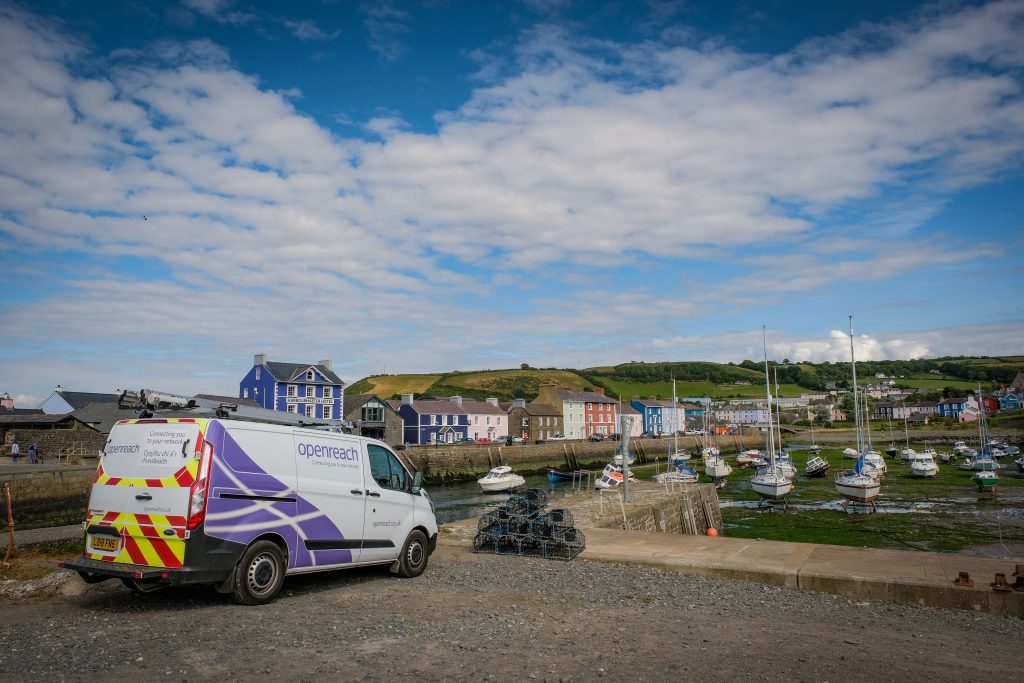
This article was Published in Fleet Manager – Issue 5 (2019) – click here
Openreach, one of the country’s largest fleet operators, has placed an order of 270 fully electric Vivaro-e vans and 9 Corsa-e cars
